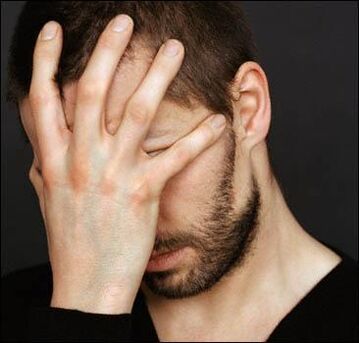- The earlier treatment is started, the better the results;
- Treatment should be comprehensive, taking into account all research data, individual characteristics, and expected developmental mechanisms of each patient;
- There are no universal medications and treatments—what helps one patient may harm another;
- Independent treatment, especially treatment based solely on non-traditional methods, is not acceptable.
Treatment of acute bacterial prostatitis
If a man develops acute clinical symptoms of prostatitis, he should be treated in a hospital's specialized urology department or general surgery department (as a last resort).
treatment strategies

- rest on bed.
- Antibacterial drugs.
- Refusal to massage the prostate not only as a treatment, but even to obtain secretions for laboratory studies, as this may lead to the spread of infection and sepsis.
- Drugs that improve microcirculation and blood rheology are administered intravenously. They act at the capillary level, promoting the outflow of lymphatic and venous blood from the inflamed area, forming toxic metabolites and bioactive substances.
- Nonsteroidal anti-inflammatory drugs, available in tablets and dragees, also have moderate analgesic effects.
- Relieve pain syndrome and play an important role in the pathogenesis of maintaining inflammation. For this purpose, painkillers are used, which also have a certain anti-inflammatory effect. Drugs from the former group also have analgesic properties. In addition, rectal suppositories are widely used in the treatment of hemorrhoidal vein phlebitis: they contain anti-inflammatory and analgesic agents. There are also propolis suppositories for treating prostatitis.
- Severe poisoning is treated with infusion. It includes intravenous administration of electrolytes, detoxification, and rheological solutions.
Leading experts in the field of European urology believe that the duration of antimicrobial therapy should be at least 2-4 weeks, followed by repeated extended examinations, including ultrasound of the prostate and laboratory control of secretions with culture to identify the pathogen andDetermine their susceptibility to antimicrobial drugs. Treatment will continue for 2-4 weeks and should continue (in total) for 1-2 months as the microbiota grows and becomes more sensitive to treatment and improves significantly. If the effect is not obvious, the strategy must be changed.
Treatment of chronic prostatitis
- mild periodic pain;
- Feelings of heaviness, "pain" and discomfort in the perineum, genitals, and lower back;
- Urinary disturbances (sometimes) characterized by intermittent pain during urination, increased frequency of urination, and small amounts of urine produced;
- Psycho-emotional disorders, depression and related sexual disorders.
- NSAID course.
- Drugs that improve blood microcirculation and lymphatic drainage from the prostate.
- Immunomodulatory drugs. Products based on prostate extracts are quite popular: in addition to their immunomodulatory effect, they improve microcirculation, reduce swelling of tissues and infiltration of leukocytes by reducing thrombosis and reducing the cross-section of blood clots. These drugs helped reduce pain intensity by 3. 2 times and dysuria symptoms by 3. 1 times in 97% of patients. These medications are available as rectal suppositories, which are very convenient for outpatient use. The average treatment course is 3-4 weeks.
- Psychotherapeutic drugs (sedatives and antidepressants), especially in patients with erectile dysfunction.
- Comprehensive physical therapy, balneotherapy and physiotherapy to help improve blood supply and strengthen pelvic floor muscles - UHF, local rectal electrophoresis, microcurrent, transrectal and transurethral microwave thermotherapy, infrared laser therapy, magnetic therapy and more. These procedures are particularly effective for pelvic pain syndrome.
Answers to several questions about the treatment methods and complications of chronic prostatitis
question. Is it possible to use traditional medicine, especially medicinal plants?
question. If men suffer from chronic prostatitis, do they need prostate and rectal massage treatment?
question. Is it worth using non-traditional treatments - acupuncture, cautery with herbs at energy activity points, leech therapy?
However, alternative treatment methods should be used in conjunction with officially accepted treatments and only after consultation with a specialist.























